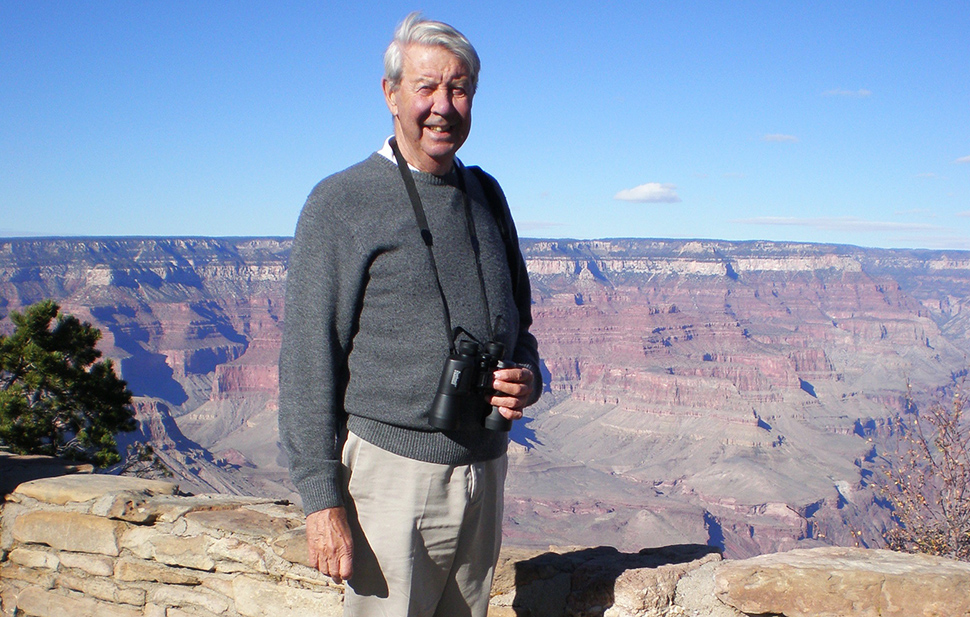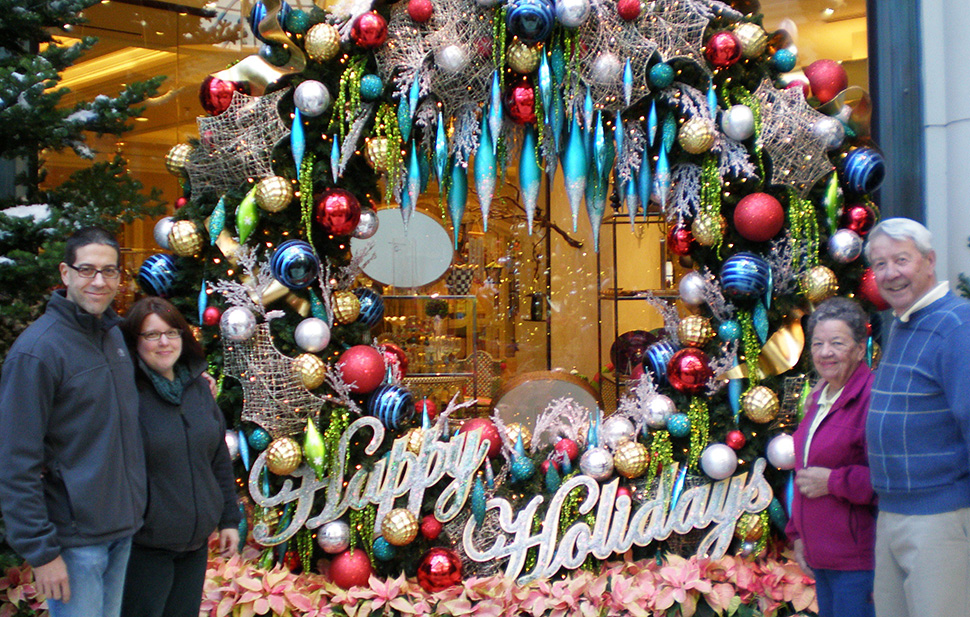Daniel Bubb is an Associate Professor in Residence in Las Vegas, Nevada.
*
Earlier this year, I wrote my legislators in my home state of Nevada asking them to support Senate Bill 165, a death with dignity bill. In the wake of my father’s painful death from Stage 4 pancreatic cancer in 2016, I felt compelled to speak out in favor of an end-of-life option that would have eased his suffering, and could do the same for terminally ill, mentally capable patients like him.
Dream Dad, Social Justice Champion
Growing up, I thought of my father, Ken, as the consummate dream dad. He was unfailingly supportive of his kids’ sports teams, self-identifying as a T-ball dad, a soccer dad, a basketball dad. He also was one of the kindest, most intelligent people I’ve ever known.

Daniel Bubb’s father Ken.
His compassion for all human beings made other people feel valued. To me, he was a social justice warrior, always fighting for people who didn’t have the resources. He devoted much of his professional career to his health consulting business, in which he provided low-cost preventative health care to those who needed it most. In his second career as a college professor, he challenged his students to do their best work.
The Call That Changed Everything
The trouble started in November 2015. While we walked in a shopping mall, I noticed his eyes and skin looked yellow. He did not have any other obvious symptoms of disease and was still acting like himself, so I chose not to say anything at that time.
Later that month, I got a call that changed everything. I learned my dad had been admitted to the emergency room. He was jaundiced, and he was sick—very sick.
A gastroenterologist found a cancer tumor on top of his pancreas. My family and I knew we had to find the best specialized care for him as quickly as we could. In March 2016, we took him to UCLA Medical Center, which has one of the best pancreatic cancer units in the country. My dad saw the chief of oncology. We learned his cancer was very advanced, and there wasn’t much doctors could do for him.
Unbearable Suffering
My dad grew weaker as the cancer spread. In his prime, he stood 6 feet 2 inches tall and weighed 190 pounds. By the end, he was 126 pounds: a barely mobile, stick-figure version of his old self. His face swelled, and he had painful sores all over his body.
I watched him struggle day after day with excruciating pain, even though he took potent painkillers. It was gut wrenching to watch cancer ravage his body despite the fact that his brilliant mind was still sharp as a tack. He was receiving the best chemotherapy treatment available, but nothing could stop the cancer from killing him.
My dad spent the last month of his life in palliative care. The care providers were wonderful and made my father as comfortable as they could. But there was some pain they simply could not alleviate.
No Way to Live
Three days before he died, he hugged me and said, “Dan, this is no way for a human being to live.”
I wish that weren’t one of my final memories of him.
In the end, he died quietly. But I know he was in pain until his final hours. He deserved better.
Since his death, I have met so many other people who also have watched cancer in its various forms ravage their loved ones’ bodies. It breaks my heart to think of all the people who have had to witness such suffering and experience their own agony and trauma.

The Bubb family. Daniel’s father, Ken, is on the right.
Becoming an Advocate
I was not aware that death with dignity laws existed until my dad died. The more I learned, the more supportive of the option I became. I have become an outspoken proponent of medical aid in dying, and wrote my legislators last spring to share my dad’s story and to encourage them to vote in favor of Senate Bill 165 in the 2019 legislative session.
Building Support
The bill passed out of its initial committee, but did not advance to a Senate floor vote this session. I was disappointed, but not deterred.
The great majority of Nevadans support death with dignity. I know policy reform will only happen if citizens like me continue to advocate for the freedom of all Americans to decide how they die. So I will keep speaking out, writing letters, providing testimony—whatever it takes to pass a law in my state and strengthen the nationwide movement for assisted dying.
It Isn’t Assisted Suicide
People opposed to death with dignity on religious grounds see it as suicide. If any of them ever had to go through what I went through, I think they might understand why people support the option. The harrowing reality of a loved one suffering from a terminal disease hits you very quickly. It is the most brutal, helpless feeling in the world.
I would hope that, if they heard a story like mine, opponents would realize that people aren’t doing this to quickly get rid of their loved ones, nor are dying patients seeking to commit suicide. They do not want to die, but they are dying.
I want to give people the option to die on their own terms when they decide they have suffered enough. It is the humane thing to do.
That’s what my dad would want.
(August 2019)
Donate So We Can Keep Sharing Stories Like This One
| DONATE |